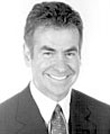 Sure Donald Trump is very much a bully and a braggart and a bozo.
Sure Donald Trump is very much a bully and a braggart and a bozo.
And yes, he frequently stretches the truth about his achievements and offends with his language.
And maybe, as most professional political types think, he’ll run out-of-steam well before the Republicans anoint their candidate 11 months from now in Cleveland.
But whether you intensely despise him or just mildly dislike him, one thing you’ve got to admit: Donald Trump is a phenomenon, the likes of which has never before been seen on the American political stage.
And there’s a good reason why Jeb Bush and his monied advisors have become increasingly concerned that Trumpomania is real, picking up momentum and must be stopped now rather than later.
Trump has energized the masses by striking the proper public relations note for an electorate distressed by an uncertain economy and shifting cultural mores and exasperated by politicians who don’t seem much to care about accomplishing anything beyond their own reelection.
Here’s why the Trump public relations positioning has worked so well so far and left the Republican establishment – not to mention, the Hillary brigade – quaking in their boots.
First, Trump is a bona fide celebrity.
In a culture of celebrity, where Q Scores reign, everyone knows Trump.
He’s been a TV star, gossip-column item and page one bombastic big mouth for years. And he really does know Tom Brady and Barbara Walters and Kanye.
Being a celebrity shouldn’t oughta' count for much when you’re running for president, but in 21st century America, it counts for plenty. That’s why Jeb Bush, et. al. have already spent millions on advertising, while Trump has spent bupkis.
Trump doesn’t need to advertise; he’s getting wall-to-wall free publicity, largely due to his larger-than-life celebrity.
Second, Trump tells it like it is.
He doesn’t talk, Politicalspeak. He speaks directly with language that people understand. You may not agree him, but you certainly know where he’s coming from.
Not so with Jeb, who waffled after his support of Common Core educational standards drew conservative criticism. Said Bush when challenged, ““The term ‘Common Core’ is so darn poisonous, I don’t even know what it means. I’m for higher standards — state-created, locally implemented — where the federal government has no role in the creation of standards, content or curriculum.” Uh huh.
Nor with Hillary, who explained to friendly interviewer Andrea Mitchell when asked about that pesky personal email account as Secretary of State, “You know, I was not thinking a lot when I got in. There was so much work to be done. We had so many problems around the world. I didn't really stop and think, what kind of e-mail system will there be.” And as to whether she would favor Middle Eastern migrants seeking sanctuary in the U.S., the woman who would be President answered, “Well, it's the world's policies. I mean, it's not only the United States. I advocated for, as I say, a more robust policy.”
Compare that to Trump on Mexican walls, Jeb’s lack of energy, Hillary’s failure as Secretary of State and any other subject you might care to raise. Trump, for better or worse, is always brutally candid.
Third, he takes on all comers.
PR consultants, like me, religiously tell their political clients, “Always take the high road, and never ever bad mouth the competition.” Indeed, even the desperate-for-attention long-shot candidates with little to lose -- Chris Christie and Mike Huckabee come to mind -- will only go after “safe targets” like Barack Obama or Planned Parenthood or illegal immigrants.
But not Trump. Trump doesn’t listen to PR consultants; he listens to Trump. And he pulls no punches.
And so……whether it’s conservative darling Meghyn Kelly or war hero John McCain or sports legend Kareem Abdul-Jabbar…the Donald let’s ‘em have it if he thinks they’ve wronged him. And he goes after them with barrels blazing, in the most undiplomatic, ad hominem way.
It's enough to make a self-respecting PR advisor reach for the ripcord.
But Trump, somehow, gets away with it; nothing sticks; so far, at least. And people seem to love the breath of fresh – and often, hot – air.
Fourth, he stays on offense.
In politics as in sports as in life, playing defense isn’t usually the way to win. A winner must control the agenda.
When Hillary is forced incessantly to defend her emails or Jeb his energy, they lose momentum, and it hurts their campaigns. But Trump, who has much to be “defensive” about, simply won’t abide. He stays on offense no matter what.
When he drew criticism for booting Univision’s Jorge Ramos from a press conference, he never wavered about Ramos deserving the treatment for being rude (which he was).
Then when Latinos criticized the candidate for his extreme positions, Trump neutralized the backlash by reaching out to meet with the CEO of the U.S. Hispanic Chamber of Commerce, who praised him.
When conservative radio interviewer Hugh Hewitt trapped Trump by asking gotcha’ questions about terrorist leaders the candidate couldn’t name, Trump exposed him as a little known talk show host trying to gain recognition (which he was).
The point is that when it comes to being put on the defensive, Trumpy don’t play ‘dat.
Fifth, he really is an “outsider.”
Whether fair or not, Americans simply don’t like politicians, particularly national ones. Since 2002, according to Gallup, the public’s approval of Congress has descended steadily, nestling today at an abysmal 14 percent.
And ever since businessman-turned presidential candidate Ross Perot received 19 percent of the vote in the 1992 election, aspirants for the land’s highest office have tried to appeal to this anti-Beltway sentiment by billing themselves as “outsiders.”
Few can get away with it; with many believing, “Once a politician – whether governor, senator or mayor -- always a politician.”
But Trump is the consummate “outsider.” He makes fun of politicians and means it. He says what he wants, pays his own way, tweets at the drop of an insult, buys no ads, talks to any reporter, calls in to talk shows, throws journalists out of press conferences – and then invites them back in to ask questions.
Yes, candidate Trump’s is a PR act never before seen on the American political stage; and as much as it’s fascinating the voting public, it’s also freaking out all of the professional politicians.
* * *
Fraser P. Seitel has been a communications consultant, author and teacher for 40 years. He may be reached directly at [email protected].


 The ridiculously high prices Americans are paying at the supermarket might influence how—or if—they vote in November.
The ridiculously high prices Americans are paying at the supermarket might influence how—or if—they vote in November. At a moment in history when there are so many conflicts among peoples here and abroad, let us put our differences aside and celebrate this wonderful season in a spirit of togetherness.
At a moment in history when there are so many conflicts among peoples here and abroad, let us put our differences aside and celebrate this wonderful season in a spirit of togetherness. The news announcing the death of Henry Kissinger, the last of the prevaricating politicians and so-called statesmen who stole my future and that of thousands of other young Americans, got me thinking about Walter Cronkite.
The news announcing the death of Henry Kissinger, the last of the prevaricating politicians and so-called statesmen who stole my future and that of thousands of other young Americans, got me thinking about Walter Cronkite.


 Have a comment? Send it to
Have a comment? Send it to 
No comments have been submitted for this story yet.